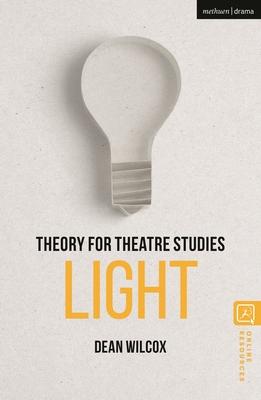What properties of light can be manipulated for aesthetic effect? What role does the perception of the audience play in how stage information is received and processed? How do changes in technology affect methods or approaches to design and practice?
This book is designed to introduce key ideas about light and to generate questions and perspectives that will encourage readers to explore light in the theatre more fully in their own critical and creative practices. Examining the theories behind stage lighting practice to help students learn to analyse the aesthetic and critical impacts of light in performance, this book traces the development of lighting practice by focusing on important shifts in technology and aesthetics from the classical period to the modern era. Central to this study are ideas developed by 'New Stagecraft' theorists and designers Adolphe Appia, Edward Gordon Craig and Robert Edmond Jones. Case studies include semiotic approaches to Loe Fuller's combination of light, movement and costume, Robert Wilson's Einstein on the Beach and Tadashi Suzuki's The Trojan Women. Further case studies including the installation work of James Turrell and Refik Anadol, the Winston Salem Light Project and David Byrne's American Utopia, examine the use of light in theatrical and non-theatrical spaces by focusing on phenomenology, community engagement and the evolution of lighting technology. A companion website features links to images, chapter summaries, questions and further resources for study.
What properties of light can be manipulated for aesthetic effect? What role does the perception of the audience play in how stage information is received and processed? How do changes in technology affect methods or approaches to design and practice?
This book is designed to introduce key ideas about light and to generate questions and perspectives that will encourage readers to explore light in the theatre more fully in their own critical and creative practices. Examining the theories behind stage lighting practice to help students learn to analyse the aesthetic and critical impacts of light in performance, this book traces the development of lighting practice by focusing on important shifts in technology and aesthetics from the classical period to the modern era. Central to this study are ideas developed by 'New Stagecraft' theorists and designers Adolphe Appia, Edward Gordon Craig and Robert Edmond Jones. Case studies include semiotic approaches to Loe Fuller's combination of light, movement and costume, Robert Wilson's Einstein on the Beach and Tadashi Suzuki's The Trojan Women. Further case studies including the installation work of James Turrell and Refik Anadol, the Winston Salem Light Project and David Byrne's American Utopia, examine the use of light in theatrical and non-theatrical spaces by focusing on phenomenology, community engagement and the evolution of lighting technology. A companion website features links to images, chapter summaries, questions and further resources for study.Hardcover
$67.78